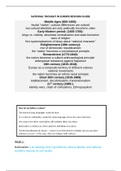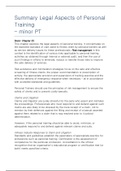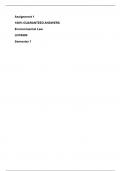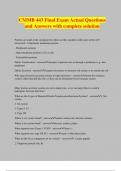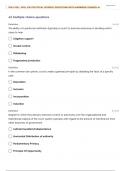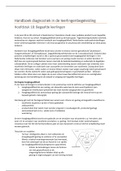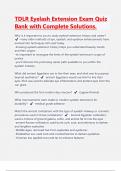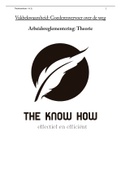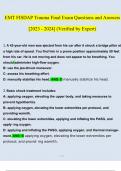Study guide
National Thought In Europe Complete Revision Guide - Seminars and Lectures
- Instelling
- Universiteit Van Amsterdam (UvA)
This guide travels through the lectures and seminar readings, week by week, in a clear and structured way. Allowing you to understand all the basic knowledge of the National Thought Course from European Studies BA. For the exam, this is especially useful, due to the fact it uses knowledge learnt in...
[Meer zien]
